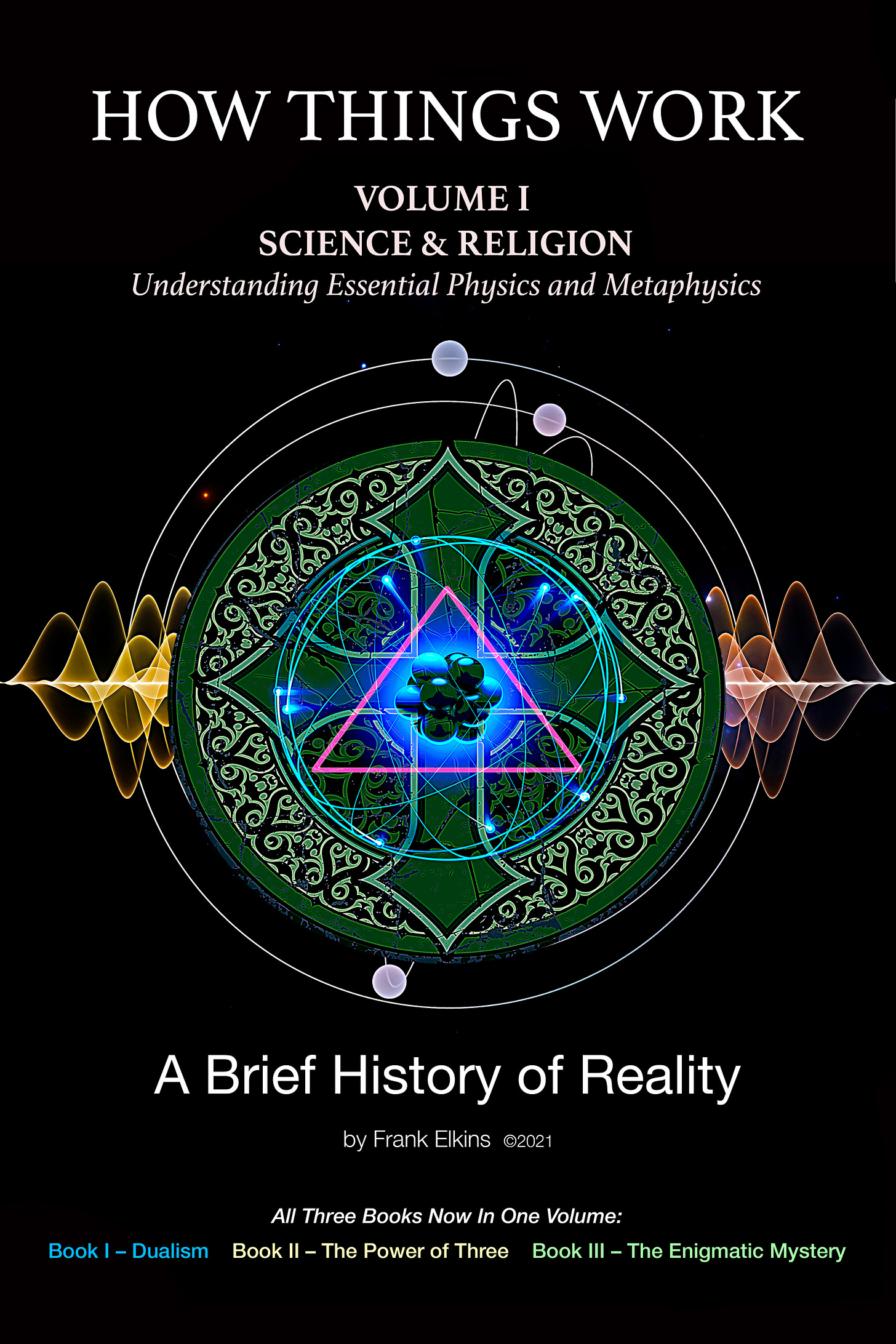How Things Work – A Brief History of Reality
Book I – Dualism (Descartes & The Scientific Method)
Be A Part of the Conversation!
Tuesday, December 27, 2021
“Thus philosophy begins by saying that the outside world is not a basic fact, that its existence can be doubted and that every proposition in which the reality of the outside world is affirmed is not an evident proposition but one that needs to be divided, dissected and analyzed.” – Bruce Lee
Preface
Welcome Everybody!
The distinction between traditional philosophy and modern scientific inquiry begins with Rene Descartes. Descartes actively questioned all aspects of the commonly accepted scientific, theological, and philosophical knowledge and dogma of his time, including the possibility of an individual self; putting into doubt all previously held explanations about the nature of reality. His manifestation of ruthless empirical rationalism would become the foundation on which a new “scientific method” of inquiry would be established. For Descartes, all reality, including God’s realty, revolved around the pristine truth of mathematics.
“The key to discovering the objective nature of how things really worked was to eliminate human bias from contaminating the process of gaining knowledge and understanding.”
Descartes saw mathematics as a kind of “pure” reason that was untainted by human influence. The key to discovering the objective nature of how things really worked was to eliminate human bias from contaminating the process of gaining knowledge and understanding. Human beings must become simply “observers” and “facilitators” in the process of discovering ultimate truths; pure unadulterated mathematics would become the essential mechanism for finding that objective scientific truth. Descartes’ influence helped develop a new modern science specifically designed to pursue “real” objective truth and understanding. The modern scientific revolution had begun.
“For Descartes, doubt became the certainty that led to the possibility of self, and therefore, higher consciousness.”
Descartes is well known for his revelation “I think, therefore I am.” However, that is not the complete thought as originally expressed by Descartes. The full expression of his thought is “I doubt, therefore I think, therefore I am.” The first, and most important step in the new process is doubting. It is Descartes as an “ever present doubter” that finally convinces him of his own reality, the reality of an individual self. For Descartes, doubt became the certainty that led to the possibility of self, and therefore, higher consciousness. However, this would open up a whole new can of worms into the nature of “mind” and “matter.”
CONSIDERATION #11: Rene Descartes and the Scientific Method
Chapter 5 – Modern Dualism
"I doubt, therefore I think, therefore I am."
– Rene Descartes
Rene Descartes (1596-1650) is considered the father of modern philosophy and the architect of contemporary science and technology, in addition to having cemented specific core beliefs and understanding into the structure of Christianity. His consistent skepticism regarding the certainty of traditional Scholastic “truths” gained through the perception of the five senses as being unproven and suspect shook the foundation of the Western world. Descartes’ idea to throw out the accepted proofs of Plato and Aristotle in order to start fresh, without the weight of past prejudice and influence, revolutionized how human beings would determine and establish reality. This led to a new catharsis in Western thought. Descartes developed an entirely new physics and metaphysics utilizing doubt; by using doubt to obtain certainty based on a system that would eventually become known as the Scientific Method. Here is how it works.
The Scientific Method
“Each problem that I solved became a rule, which served afterwards to solve other problems.”
– Rene Descartes
Descartes did not believe he was uniquely intelligent, however, he believed that all human beings were born with the divine spark of reason. Ironically, individual free-will, makes it possible for individuals to ignore, avoid, or disregard the wisdom of reason. Therefore, Descartes devised a system designed to keep reason on track no matter who was utilizing it. Intelligence was not a factor, as long as you followed the four-step process which would come to be known as the Scientific Method.
Decartes’ Scientific Method:
(1) Accept nothing as true that is not self-evident
(2) Divide problems into their simplest parts
(3) Solve problems proceeding from simple to complex
(4) Recheck the entire chain of reasoning
For Descartes, these rules represented a direct application of rigorous mathematical principles and procedures. Each step being clearly defined and solved before moving to the next step. Using these rules, Descartes began doubting everything he knew, or was ever taught, including his own existence until he came to only one real certainty: whether a particular claim was true or false was not always verifiable, what was critical, however, was that there was always a doubter present in the process. The proof of Descartes’ existence was actualized through his very doubting; someone was always “there” doing the doubting. This led to Descartes’ groundbreaking revelation that “I doubt, therefore I think, therefore I am.” However, the next question naturally becomes, who is the “I” that is actually doing the doubting?
Postscript
Descartes represents the demarcation between classical and “modern” Western thought in terms of science and technology. By daring to question and even give up the long-held truths of traditional Western philosophy, Descartes develops an entirely new system of scientific thinking based on doubt designed to obtain completely objective results without human bias that would come to be known as the “scientific method.” Descartes’ scientific method would catapult humanity into a new era of scientific and technological development. Ironically, it would also open a new metaphysical door requiring the very ancient metaphysics Descartes doubted in the first place.
Next week we will delve deeper into the influence of Descartes’ and his understanding of the “mind-body paradox.”
Happy New Year!
All Three Books in This Series are Now Available Individually or All Together in “Volume I: Science & Religion” ONLY $9.95!
Exclusively from BooksNotOnAmazon.com



